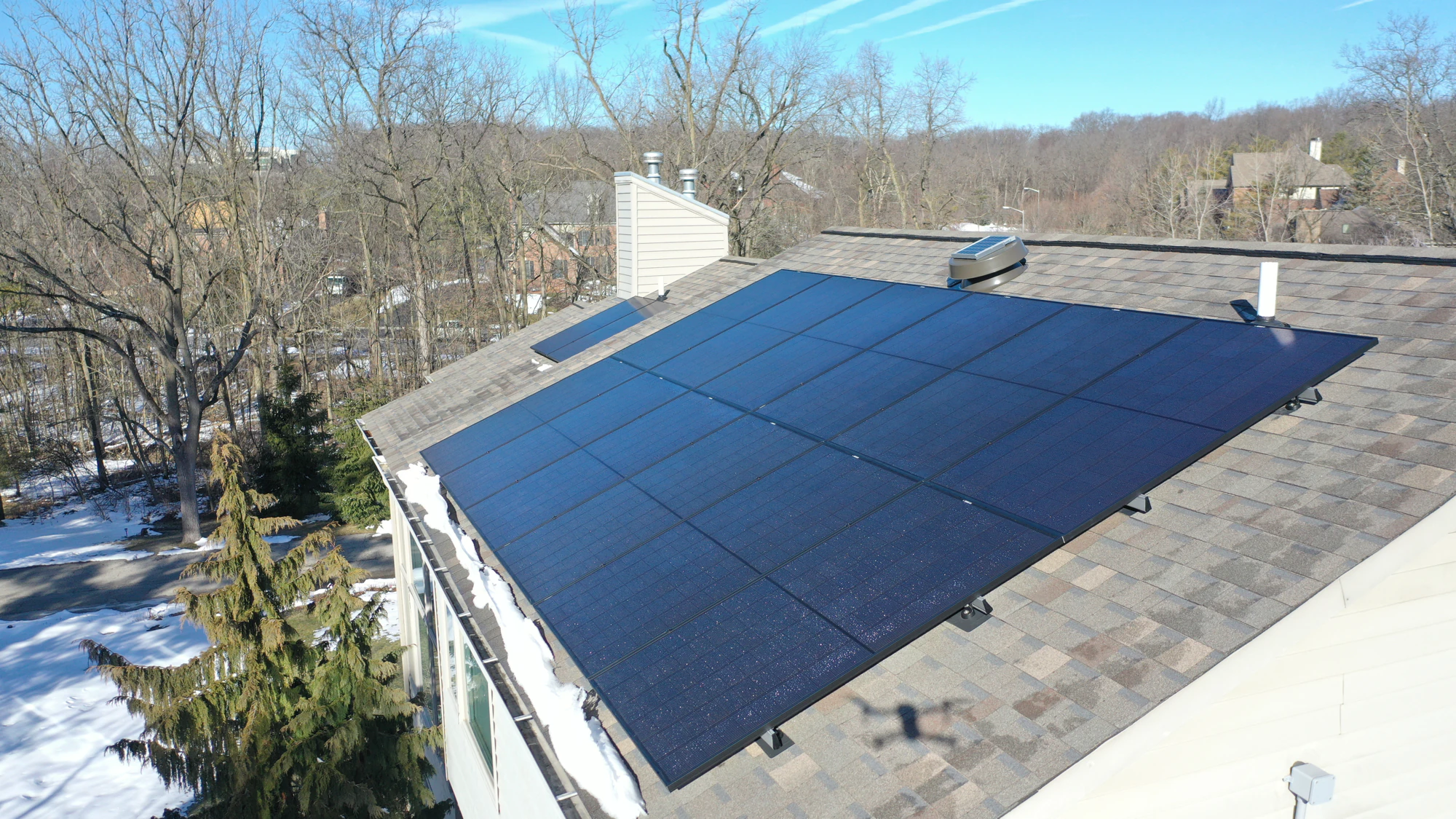
Michigan is rapidly becoming a leader in solar energy adoption, with the number of solar installations increasing exponentially over recent years. As of 2023, the state has seen a 30% year-over-year growth in residential solar installations, with over 25,000 homes now generating their own electricity from the sun.
To further incentivize this green transition, Michigan offers an array of tax credits, incentives, and rebates aimed at making solar energy more accessible and affordable for both homeowners and businesses. This guide provides an in-depth overview of the key programs available in 2024, helping you navigate the financial benefits of going solar in the Great Lakes State.
Let's explore all the solar incentives available in Michigan, including the federal tax credit, and see how much solar panels typically cost in the Great Lake State.

Cost of Home Solar Power in Michigan
A typical residential solar system in Michigan is around 10kw which costs $32,124 on average, according to Energy Sage. This is before incentives which bring the cost down considerably.
Solar Incentives and Rebates in Michigan
Michigan Saves Home Energy Loan Program
- Incentive value: Varies based on your interest rate, your total system cost, etc
- Frequency: One time
- Program: michigansaves.org/homeowners
The program aims to increase solar accessibility for Michigan residents by facilitating affordable loans. The program partners with third-party lenders to offer more favorable terms, including reduced interest rates and lower down payment requirements for solar panel installations. Additionally, this program can be utilized for other energy-efficient home upgrades that contribute to emission reduction.
It's important to note that this program is specifically designed for those financing their solar panel systems. If you prefer a cash purchase, which offers the highest long-term return on investment, or opt for a lease or power purchase agreement (PPA), this program may not be applicable. On average, homeowners can expect to save approximately $32,403 over the lifespan of their solar panels due to reduced energy consumption.
Alternative Energy Property Tax Exemption
- Incentive value: Varies based on your system size and value
- Frequency: Ongoing
- Program: michigan.gov/taxes/property/exemptions/solar-energy-facility-exemption
One of the exciting benefits of installing solar panels is the potential increase in your home's value! Studies show an average increase of 4.1%, which translates to a positive return on investment for your property.
In Michigan, there's an added advantage: the state offers a property tax exemption for the value added by your solar panel system. This means you'll enjoy the increased home value without any additional tax burden. This exemption significantly reduces the long-term financial impact of converting to solar energy.
Over the lifespan of your solar panels (approximately 20 years), this could translate to total savings of $8,311. Even with equipment depreciation, the long-term tax benefit remains substantial.
Local Incentives
Lansing Board of Water & Light (LBWL) Residential Energy Efficiency Rebates
The Lansing Board of Water & Light (LBWL) offers a helping hand to residents looking to switch to solar energy.
- Their Residential Energy Efficiency Rebates program provides a rebate of up to $500 per kilowatt (kW) installed, with a maximum total of $2,000.
- Considering the average solar array size in the area is 7 kW, most LBWL customers can expect to receive the full $2,000 rebate.
This financial incentive from LBWL can significantly reduce the upfront cost of installing solar panels on your home. In addition to the LBWL program, new incentives from local providers may emerge in the future. To stay up-to-date on all available rebates and programs, you can easily check the Database of State Incentives for Renewables & Efficiency (DSIRE).

Net Metering
What is Net Metering
Net metering is a system in which utilities and their customers, who generate their own electricity (for instance, through solar panels), enter into an agreement. This setup includes residential, commercial, or industrial energy producers.
When these consumers generate more electricity than they consume, they can sell the surplus back to the utility company, receiving credits on future bills. Essentially, the utility company credits the consumer for every kilowatt-hour (kWh) of solar energy that a home does not use and instead feeds back into the grid, leading to lower electricity bills.
Net Metering in Michigan
Michigan offers net energy metering (NEM), a program that allows homeowners with solar panels to receive credits for excess electricity they generate and send back to the grid. The credit rate is based on the avoided cost rate, which means it might be lower than the retail electricity rate.
Availability
Michigan's net metering rules apply only to rate-regulated utilities and alternative electric suppliers. These include investor-owned utilities and some rural electric cooperatives. As of April 2011, only Cherryland, Alger Delta, and Tri County cooperatives opted for member regulation. Municipal utilities are not regulated by the MPSC.
Eligible Technologies and System Size
Net metering is available for renewable energy systems like solar, wind, biomass, geothermal, and more. Systems up to 20 kilowatts (kW) qualify for "true" net metering, while systems between 20 kW and 150 kW qualify for "modified" net metering. Generally, a system can only be as large as needed to meet the customer's requirements.
Aggregate Cap
The overall cap for the distributed generation program, covering both net metering and inflow-outflow customers, is 10% of the state's average in-state peak load over the past five years. Half of this cap is for systems of 20 kW or less, and the other half is for systems ranging between 20-550 kW.
Nondiscriminatory Rates Requirement
Utilities must offer net metering customers electric service at the same rates as non-net metering customers.
Net Excess Generation
For systems of 20 kW or less, any excess generation during a billing period can be carried forward to the next period at the retail rate. For larger systems (up to 550 kW), excess generation can be carried over at a lower rate, reflecting the power supply component or market price. These credits cannot be used to offset distribution charges.
Renewable Energy Credit Ownership
Customers generating their own electricity under the net metering program retain ownership of the renewable energy credits (RECs).
Metering
Large utilities (serving over 1 million customers) must provide necessary metering equipment to true net metering customers at no extra cost. Smaller utilities can charge only for the cost difference between standard and net metering compatible meters. At the time of publication, application fees for net metering are capped at $25, while total application and interconnection review fees cannot exceed $100.
Federal Rebates
Federal Solar Tax Credit
The Investment Tax Credit (ITC), also known as the federal solar tax credit, is a nationwide incentive enabling individuals to receive a tax credit for expenses incurred from the installation of solar panels. This credit provides owners of solar systems a deduction of 30% off the total cost of their system. For instance, purchasing a 10 kilowatt (kW) system at $33,000 means you are eligible for a tax credit of $9,900.
How US Solar Supplier Can Help You Save on Your Next Project
Let US Solar Supplier guide your solar energy project! Consult with us today to find the perfect system for your needs.
Resource Section
https://www.ecowatch.com/solar/incentives/mi
https://www.energysage.com/local-data/solar-rebates-incentives/mi/







